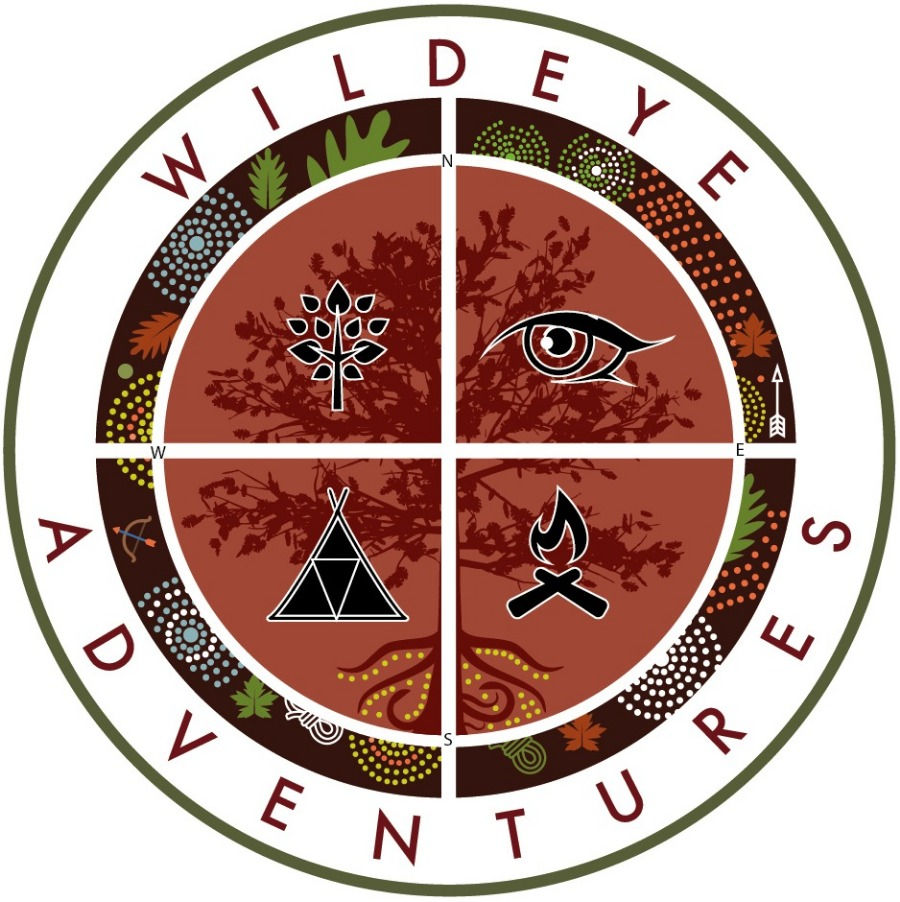Why the UK Government should encourage Bushcraft & Outdoor Skills in ALL schools
Bushcraft and outdoor skills are increasingly recognised as an important aspect of youth development. Not only do these activities promote physical fitness and environmental awareness, but they also provide young people with valuable life skills and promote mental health and wellbeing. One of the most significant benefits of practicing bushcraft and outdoor skills is the improvement in physical fitness. Many of these activities involve hiking, camping, and exploring nature, which are excellent ways to build endurance and strength. Additionally, bushcraft and survival skills encourage young people to be active and engage with the natural world, which can reduce stress and improve overall health.

Outdoor education also fosters environmental awareness, teaching young people about the importance of conservation and sustainability. It encourages a deep appreciation and respect for nature, helping to inspire future generations to protect and care for the planet.
But the benefits of outdoor education extend beyond physical fitness and environmental awareness. Bushcraft and outdoor skills also teach valuable life skills, such as problem-solving, leadership, teamwork, and communication. These skills can help young people to become more independent, confident, and resilient, preparing them for future challenges.
Perhaps most importantly, practicing bushcraft and outdoor skills is good for mental health and wellbeing. Studies have shown that spending time in nature can reduce stress and anxiety, boost mood and self-esteem, and improve overall mental health. Outdoor education provides an opportunity for young people to connect with nature, escape the stresses of modern life, and develop a sense of inner calm and peace.
Given the many benefits of bushcraft and outdoor skills, it's no surprise that more and more schools in the UK are embracing outdoor education, though why is it still not nationally recognised within the National Curriculum?
Encouraging young people to spend time in nature, learning practical skills and gaining a deeper understanding of the natural world, is an excellent way to promote physical and mental health, inspire a passion for environmental conservation, and equip young people with the skills and resilience they need to thrive in life.

OUTDOOR SKILLS & OUTDOOR EXPOSURE IS BENEFICIAL TO BRAIN DEVELOPMENT & MENTAL WELLBEING
In today's fast-paced and often stressful world, spending time in nature has become increasingly important for maintaining a healthy mind and body. Studies have shown that time spent in nature can reduce levels of the stress hormone cortisol, leading to a decrease in anxiety and depression. Exposure to natural light and fresh air can also improve sleep quality, leading to better overall physical and mental health.
Outdoor education and bushcraft activities also promote mindfulness, which is the practice of being fully present in the moment. Being mindful has been shown to improve mental health by reducing rumination, or the tendency to overthink negative thoughts. By being in nature, surrounded by natural beauty and wildlife, young people can develop a sense of calm and inner peace, which can have long-lasting positive effects on their mental health.
Additionally, learning new skills and accomplishing tasks in a natural environment can boost self-esteem and confidence. Overcoming challenges and mastering new skills can give young people a sense of accomplishment and pride, leading to increased self-worth and a more positive outlook on life.
Overall, practicing bushcraft and outdoor skills is an excellent way to promote mental health and wellbeing. It provides an opportunity for young people to disconnect from the stress of daily life, connect with nature, and develop valuable life skills that can be applied in all areas of life. Encouraging more schools to implement outdoor education and bushcraft activities is a crucial step in promoting the mental and physical health of future generations.
Children often feel happier and healthier in nature because being in a natural environment offers a range of benefits for their physical, mental, and emotional well-being. Here are some of the reasons why children feel happier and healthier in nature:
Reduced Stress and Anxiety: Nature has a calming effect on the mind and body, reducing levels of the stress hormone cortisol and increasing feelings of relaxation and calm. This can help children feel less anxious and more at ease, leading to improved mental health and a greater sense of happiness.
Increased Physical Activity: Being outdoors in nature often involves physical activity, whether it's hiking, running, climbing, or exploring. This can help children stay active and fit, leading to improved physical health and well-being.
Improved Sleep Quality: Exposure to natural light and fresh air can help regulate the body's circadian rhythms, leading to improved sleep quality. Getting enough sleep is important for maintaining good physical and mental health, so this can contribute to overall happiness and well-being.
Enhanced Creativity and Imagination: Being in nature can stimulate the imagination and foster creativity, encouraging children to engage in imaginative play, art, and storytelling. This can help them develop their creativity and expand their imagination, leading to greater overall happiness and a sense of fulfillment.
Sense of Freedom and Exploration: Being in nature offers a sense of freedom and exploration that can be difficult to find in more structured environments. This sense of freedom and exploration can be incredibly empowering and fulfilling, leading to increased happiness and well-being.
Overall, children feel happier and healthier in nature because being outdoors offers a range of benefits for their physical, mental, and emotional well-being. By providing opportunities for children to connect with nature, we can help them develop important life skills, improve their health and well-being, and cultivate a sense of joy and wonder in the world around them.

Participating in outdoor education and bushcraft activities can promote independence in a few different ways.
Below are some examples of how practising survival skills & bushcraft can help to encourage independence:
Developing self-reliance: Outdoor education and bushcraft typically involve learning survival skills such as how to start a fire, build a shelter, and find food and water in the wild. As individuals develop these skills, they become more self-reliant and less dependent on others.
Taking responsibility: In outdoor education and bushcraft, participants are often responsible for their own safety and well-being. They learn to take responsibility for their actions and decisions, which can translate to greater independence in other areas of life.
Building confidence: Successfully completing tasks and challenges in an outdoor setting can be a major confidence booster. This newfound confidence can encourage individuals to take on new challenges and make decisions with greater independence.
Encouraging problem-solving: Outdoor education and bushcraft often involve unexpected challenges and obstacles. Participants must think critically and creatively to overcome these challenges, which can help develop problem-solving skills that translate to other areas of life.
Fostering a sense of adventure: Participating in outdoor education and bushcraft can inspire a sense of adventure and exploration. Individuals who are comfortable taking risks and trying new things are more likely to be independent and self-directed.
Overall, outdoor education and bushcraft can be powerful tools for promoting independence, self-reliance, and personal growth. By encouraging participants to take on challenges, make decisions, and solve problems on their own, these experiences can help build the skills and mindset necessary for independence in all areas of life.
HOW CAN WE GET THE BRITISH GOVERNMENT TO ACKNOWLEDGE THE IMPORTANCE OF OUTDOOR EDUCATION FOR YOUNG PEOPLE?
Getting the British government to acknowledge the importance of outdoor education for young people can be a challenging task, but there are a few things that can be done to create ripples, raise awareness and encourage action.
Firstly, it's essential to gather evidence of the benefits of outdoor education and the positive impact it has on young people's mental and physical health. This can be done through research studies, surveys, and testimonials from schools and organisations that have implemented outdoor education programs. This evidence can then be presented to government officials and policy-makers to demonstrate the importance of supporting and promoting outdoor education.
Secondly, it's important to engage with local MPs and government officials to raise awareness of the issue. This can be done by writing letters, emails, or arranging meetings with MPs or government officials to discuss the benefits of outdoor education and the importance of incorporating it into the national curriculum.
Thirdly, forming alliances with other organisations and groups that support outdoor education can help to build momentum and put pressure on the government to take action. This could involve working with environmental organisations, outdoor education providers, and youth advocacy groups to promote the importance of outdoor education.
Finally, encouraging young people and their families to get involved in outdoor education and bushcraft activities can also help to build support for the cause. When parents see the positive impact that outdoor education has on their children, they are more likely to advocate for it and encourage schools to incorporate it into their curriculum.
In conclusion, getting the British government to acknowledge the importance of outdoor education for young people requires a multi-faceted approach that involves gathering evidence, engaging with government officials, forming alliances with other organisations, and encouraging youth and their families to get involved. By working together, we can promote the many benefits of outdoor education and ensure that future generations have access to the tools and skills they need to thrive in life.































Comments